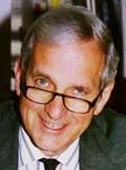10,000 Hours or Ten Years to Expert Performance in Surgery

Martin McKneally
|
In the Chairman's column,
Richard Reznick contrasts the
extensive time requirement
for development of expertise
recounted by Malcolm Gladwell
in his best-selling book Outliers with the current restrictions on
the hours of training prescribed
for surgical residents in Europe
and North America. In his provocative
and articulate style,
Gladwell explicates the remarkable research of K. Anders
Ericsson, A.C. Lehmann and their colleagues at the Max
Planck Institute for Human Development in Berlin (1).
These authors studied musicians at the elite Berlin
School of Music, as well as typists, professional athletes,
chess champions and other experts. 10,000 hours of
deliberate practice was critical for taking musicians to a
level of expertise that enabled them to play in a professional
orchestra on the concert stage, or for athletes to
compete at a professional level.
Deliberate practice was defined as skillful deconstruction,
critical analysis, and reflective repetitive practice
with expert feedback from coaches or from disciplined
self-study.
Professionals engage in "deliberate practice, perfecting
components of performance analytically with multiple repetitions
and improvements". Tiger Woods works on perfecting
defined components of his golf swing. Michael
Phelps tests and develops minor changes in his strokes
or kicks to improve his performance in the pool. Simply
hitting balls or swimming laps is not deliberate practice.
Coaching and feedback are an important component;
they should be consistent and based on expert technical
knowledge.
The analogy to surgical training is tempting to draw.
The development of fast twitch fibres and recruiting of
muscle memory to choreograph digital and instrumental
movements fits well. All analogies limp, and the limp
occurs at the point where the similarity breaks down.
Surgeons in training don't get much deliberate practice,
though they get a lot of surgical work. Ericsson: "Let us
briefly illustrate the differences between work and deliberate
practice. During a 3-hr baseball game, a batter may get
5-15 pitches [perhaps one or two relevant to a particular
weakness], whereas during optimal practice of the same
duration, a batter working with a dedicated pitcher has several
hundred batting opportunities, where his weakness can
be systematically explored." The potential contribution of
the simulation lab springs to mind.
|
In a thoughtful recent editorial in the Canadian
Medical Association Journal, British Columbia neurosurgeon
David A. Omahen dissects the analogy
further (2). He calculates that the 10,000 hour mark is
attained in neurosurgery residency in about 6.9 years.
He draws attention to the apparent coincidence that
most neurosurgery residencies are six years long, with
many residents electing to take one extra year of fellowship
training. He questions how much of the 10,000
hour experience qualifies as deliberate practice. "The
time spent by a resident watching an operation from the
sidelines, or admitting the fifth 'weak and dizzy' patient
at 4am probably doesn't fall into the category of deliberate
practice!" Omahen also underlines Ericsson's finding
that high level violinists took naps during the day and
got a statistically significant greater amount of sleep
than those who wound up as violin teachers rather
than concert performers. He closes on an optimistic
note - that effective teachers, perhaps those with ten
years or 10,000 hours of deliberate practice at teaching,
can have a powerful and lifelong impact on learners
"by placing information in a meaningful context, creating
situations that facilitate deliberate practice and providing
immediate valid feedback".
In defense of the value of residents' work, we can reflect
on Gladwell's interesting observation that prodigies with
great technical skill in music often do not develop into
mature concert musicians unless they develop the social
and other less technical components of mature performance.
This may be used as part of the justification for
the diverse tasks residents perform outside the operating
room. Many of these experiences teach surgeons needed
social skills and help them develop mature judgement as
their decisions are reviewed by senior colleagues, experienced
nurses and thoughtful patients.
We are fortunate to have analytic educational scholars
in our department like Glenn Regehr, Richard Reznick
and their colleagues who continue and extend the analytic
work of Ericsson. Studying timing, errors, and
instrument movement in the laboratory, they have demonstrated
that improvements developed during deliberate
practice significantly transfer into effective surgical
treatment of living patients (3, 4).
Martin McKneally
(1) Ericsson KA, Lehmann AC. Expert and exceptional performance:
evidence of maximal adaptation to task constraints.
Annu Rev Psychol 1996;47:273-305.
(2) Omahen DA. The 10,000-hour rule and residency training.
CMAJ June 9, 2009;180(12):1272.
(3) Mylopolous R, Regehr G. Cognitive metaphors of expertise
and knowledge: prospects and limitations for medical
education. Med Educ 2007;41:1159-65.
(4) Park J, MacRae H, Musselman LJ, Rossos P, Hamstra SJ,
Wolam S, Reznick RK. Randomised controlled trial of
virtual reality simulator training: transfer to live patients.
Am J Surg 2007;194(2):205-11.
|